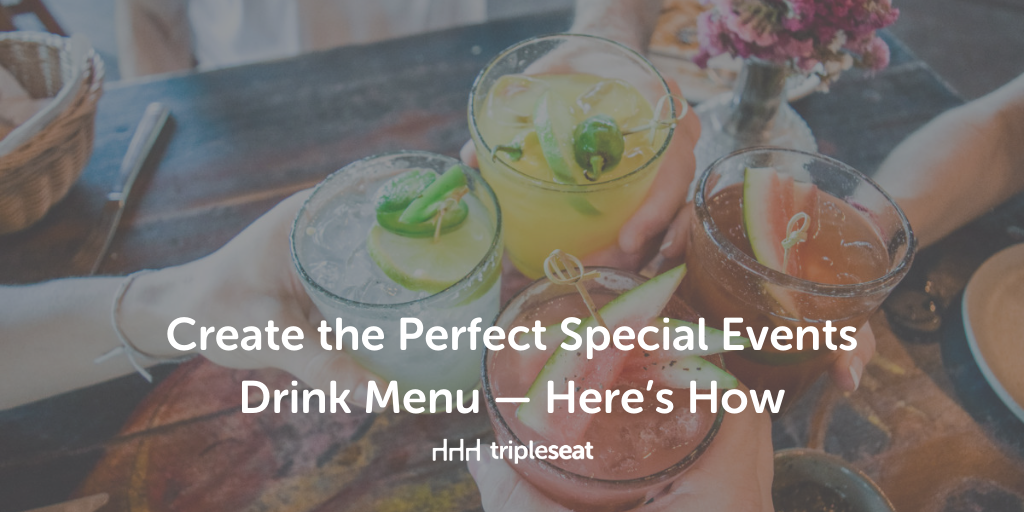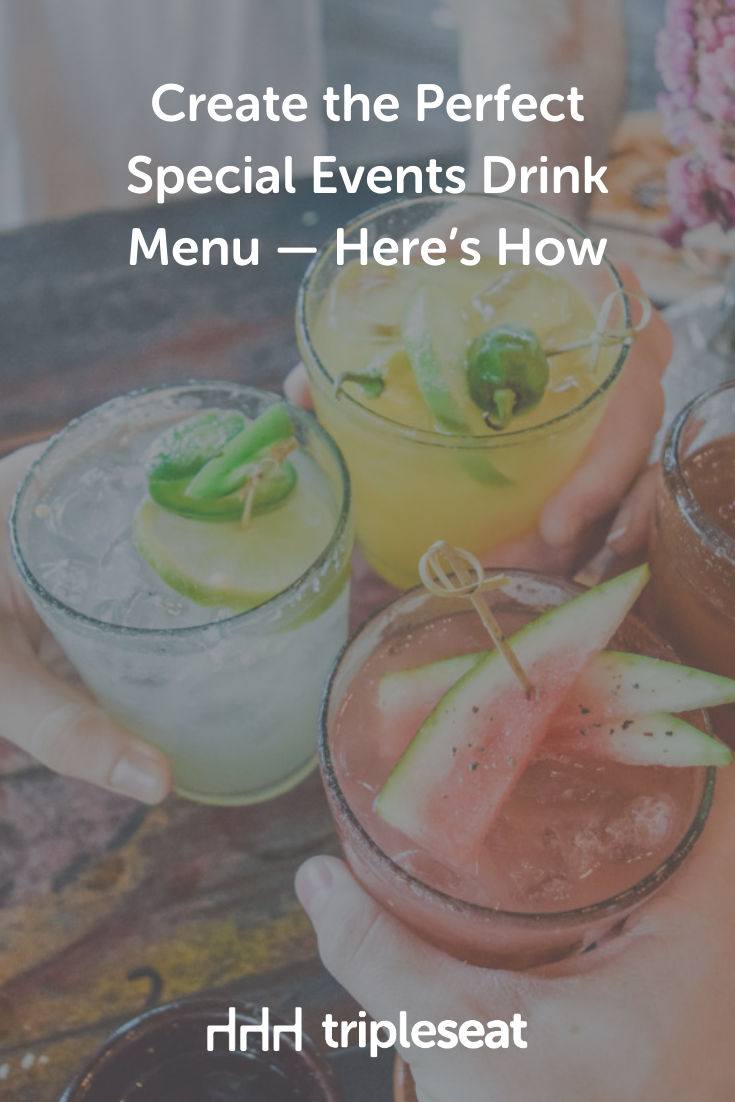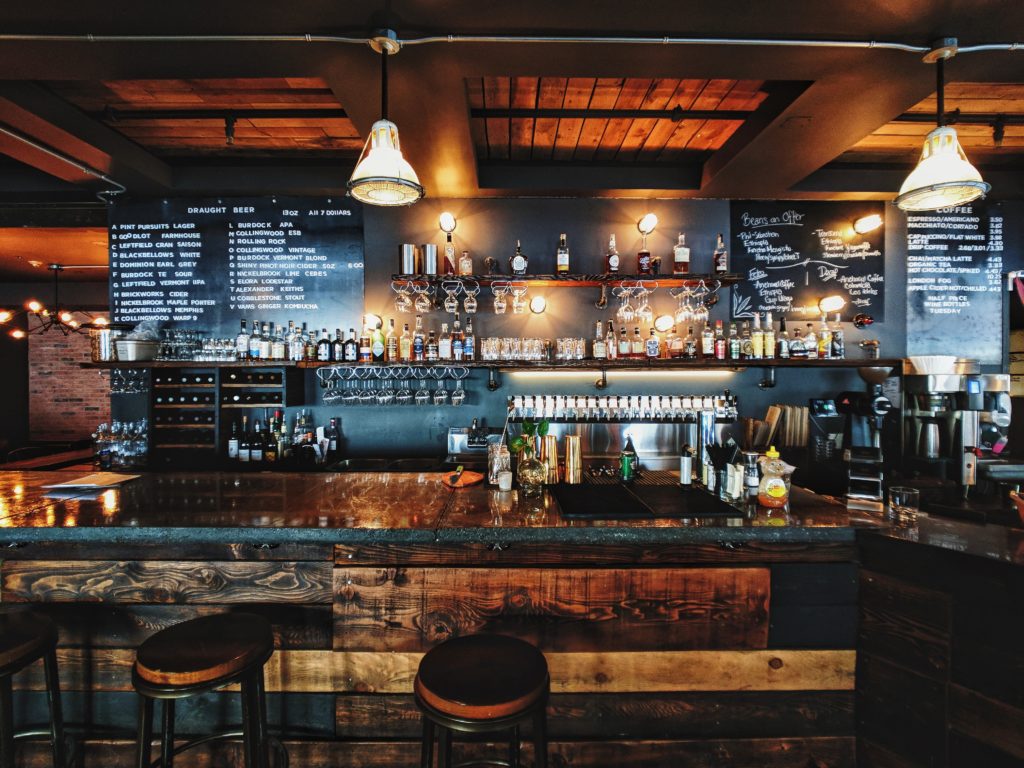Create the Perfect Special Events Drink Menu — Here’s How
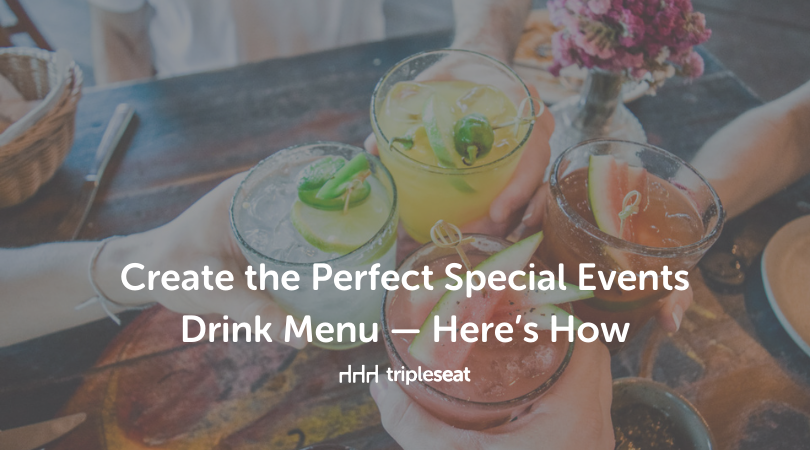
The right kind of drink menu and bar setup can give you a serious edge over your competition. It can create buzz and be memorable, or it can be a point of frustration in the flow of the night. Not sure where to begin? We’ve got you!
These tips will help you create the perfect drink menu for any type of special event at your restaurant.
Consider the type of event
First and foremost, consider the event type your restaurant is hosting. The specific event aspects will dictate the overall direction of the drink menu and most other decisions you make about the bar.
- Atmosphere: Consider if the event is fancy and elevated or casual and informal, and what the drink expectations may be based on that. Think: Champagne and martinis vs. draft beer and sangria.
- Corporate vs. social: The drink menu approach could change depending on whether the party is corporate-related or entirely social.
- Time of day: It almost goes without saying that a brunch event in the late morning will have a very different drink menu than an evening party.
- Holiday or theme: If the event is centered on a major holiday or has a particular theme (like the Roaring ‘20s), this could be the inspiration for your drink menu.
- Demographics: The general age of the crowd, or the diversity of ages, could impact the drinks you plan to offer. You want to make sure you meet expectations.
- Guest of honor: If the party is honoring a specific person or entity, consider making a menu that reflects something central or unique about them. Ask if they have a favorite mixed drink or want a signature cocktail named for them to be served.
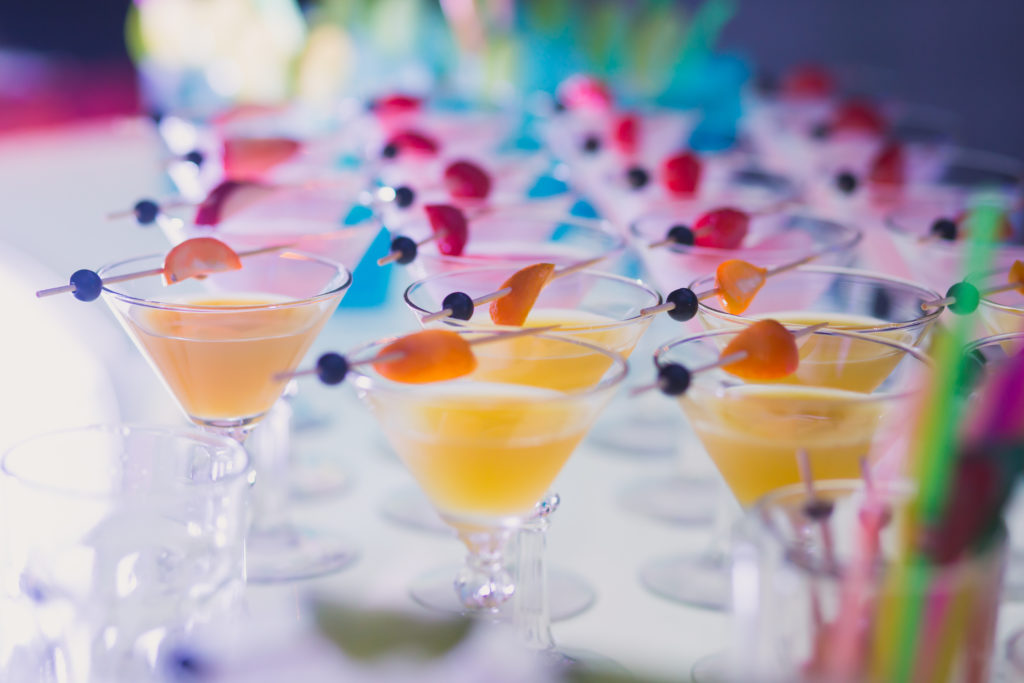
Structure your bar accordingly
Before you start crafting your drink menu, it’s important to think about how guests will interact with the bar. If an outside party is hosting an event at your establishment, the budget can dictate the bar setup. But if your restaurant is throwing its own event, it’s worth considering how patrons will get to your expertly created drinks.
Open bar
- Pro: When working with outside clients, open bars can be lucrative for a restaurant — fixed costs and gratuity are calculated in the price. (If you’re hosting the event yourself, consider an open bar for a fixed amount of time.) Bartenders can focus their time on making drinks and providing customer service, instead of starting and closing tabs or handling cash. Guests get the added flexibility of being able to order anything they want, and you can still make an event-specific cocktail menu.
- Con: Open bar may as well be synonymous with over-indulging, so guests can potentially become unruly as they drink too much. At a high-volume event, open bars can also lead to long lines and frustrated attendees.
- Tip! You can structure the open bar as a running tab (whatever gets ordered gets paid for at the end of the night), or as a package price (predetermined cost for a certain amount of hours of an open bar, regardless of what actually gets ordered).
Limited bar
- Pro: In essence, you can have an open bar but with certain conditions: for example, tiered packages that offer liquor up to a certain price point, or beer and wine for free with the option to pay cash for liquor drinks. This can help control costs and still gives guests choices.
- Con: Open bars of any kind can still potentially lead to over-consumption.
Cash bar
- Pro: Like any night at your restaurant, bartenders maintain control over the flow of alcohol and guests who may have overindulged. Drinks stay priced at your goal pour cost, and tips come in as they regularly would.
- Con: At certain kinds of events, guests may be less inclined to attend or become frustrated at the thought of a cash bar, especially if they’ve had to pay for a ticket to the event. To counteract this, you could offer a gratis drink to guests as they arrive.
Drink tickets
- Pro: Drink tickets as payment certainly speeds up the exchange at the bar. This also gives bartenders time to focus on the drinks and the guests. It can also control costs for the host of the event if drink tickets are associated with specific cocktails. A limit on the number of drink tickets per guest also controls over-consumption.
- Con: This isn’t so much a con as a complexity, but the event team will have to think about how to distribute drink tickets to people attending the party, how many drink tickets people will get, and whether the cost should be different for beer, wine, and cocktails.
Create your drink menu
Now that you have the structure of the bar handled, it’s time to build your drink menu. The possibilities are endless, but it’s important to make choices that make sense for your bar, your team, and your target pour costs.
- Liquor quality: Depending on your bar setup, you may be able to control the liquor offered to keep the bar a profitable part of the event. But depending on the echelon of the event, you may want to use top-shelf liquor as a part of the appeal. Look to your most popular cocktails, beers, wines to get an idea of guest tastes.
- Liquor selection: If you’re stocking a limited bar for an event, be sure to include liquors across the spectrum so guests can order whatever they want, give or take.
- Inventory and ordering: Think about what you’ll need in advance of the event — not just for the event itself, but for any research and development you plan to do with ingredients you don’t currently have in-house. Be sure to take stock of your inventory and order appropriately.
- Cocktail strength: If you’re designing a very specific cocktail menu, consider how strong your drinks are to keep party guests from unintentionally over-drinking.
- Shots! Shots! Shots!: Will you allow them or not?
- Mocktails: Keep in mind there may be people at the event who aren’t drinking. You could create unique mocktails or craft cocktails that can easily be made virgin.
- Food menu: You can use the food menu as inspiration for perfect pairings. Talk to your kitchen because they’re thinking about the same things you are.
- Signature drink: Signature drinks can serve a number of purposes at a party. They can honor the theme of the event and act as an easy choice for guests.
- Batch drinks: If it will be a big crowd, you can consider including a batched drink on your menu for quick service. Signature beverages are also good candidates for batch drinks.
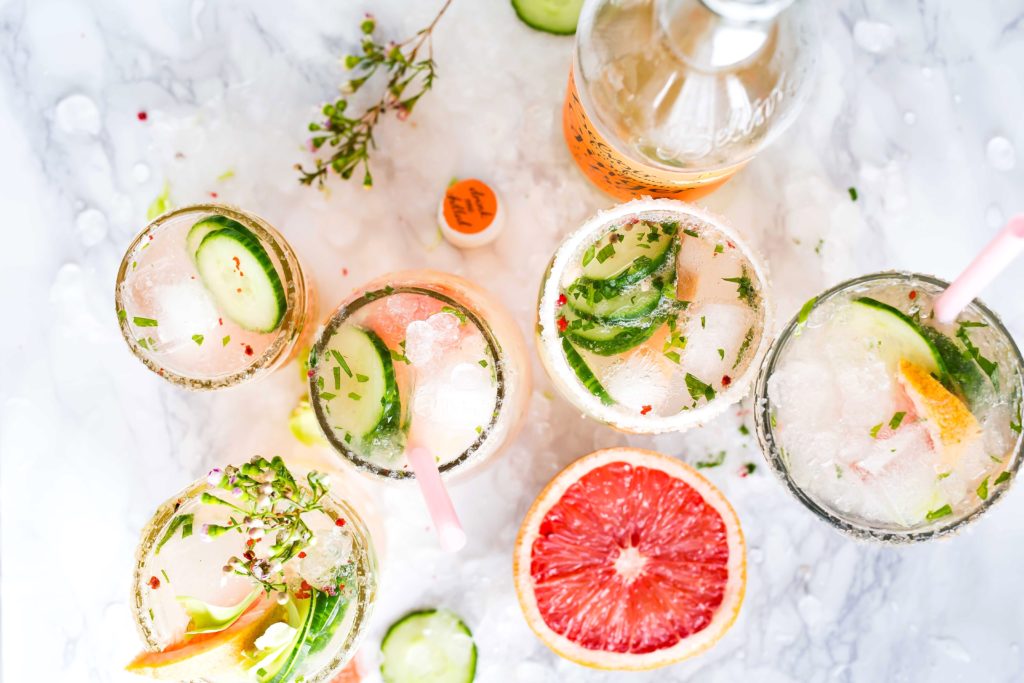 Design your drink menu
Design your drink menu
Once you’ve got your approach and your drinks down, make sure you design the drink menu in a way that highlights all your hard work.
- Include descriptions: To help customers make a decision and to upsell certain drinks, include a short description for each item.
- List each ingredient: The order of ingredients tends to express quantity, so list the main spirit first, followed by other spirits, juices, liqueurs, or bitters. You can also describe the drink’s flavor, composition, or history. But try to be succinct.
- Include origins: Thanks to the rise in local distilleries and breweries across the U.S., it can be useful to mention a product’s origin, especially if it’s nearby.
- Come up with creative cocktail names: Drink names shouldn’t be an afterthought. Names account for much of the reason someone orders a drink. At a special event, they can be a memorable aspect of the party. Think of the guests, quotes, puns, pop culture references, or seasonal descriptors as inspiration.
- List drinks strategically: People tend to look at the top right corner of a drink menu first, then the first few and last few items on the list. Place your most profitable drinks there.
- Use a hashtag: Hashtags are used frequently at public and private events. Put your restaurant hashtag on the drink menu so guests can promote what they loved on social media.
A better drink menu will help you book more events
Creating a thoughtful drink menu can make a major impact on the quality of your special events and parties. With a little bit of upfront work between the event team, the kitchen, and the bar, you’ll be on your way to a great event bar program!
As this part of your business takes off, use Tripleseat to streamline events at your restaurant or venue. Schedule a live demo today!
Editor’s Note: This post was originally published on the Gather blog and written by Rebekah Gallacher.
